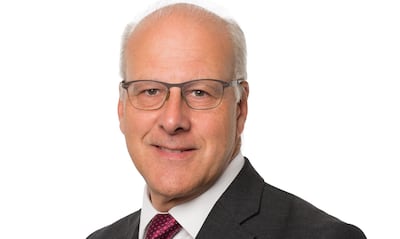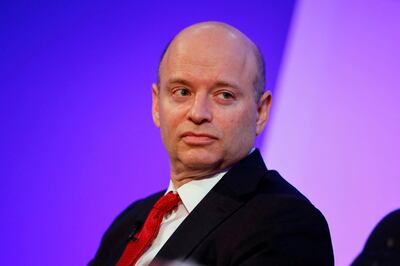Britain's Labour Party on Thursday claimed the UK's financial services sector would be safe in its hands as it overcomes the historic reality that those based in the City of London have seldom been the best of friends with the movement.
Up until the 1990s, Labour governments tended to view the leading figures in London Square Mile financial district with a Marxist suspicion, while once bowler-hatted bankers saw Labour governments as "Reds under the bed".
Today's Labour frontmen, much as Tony Blair's government did in the mid-1990s, tend to try to outdo each other when it comes to cosying up to the City.
The 28-page Financing Growth document launched by Labour on Thursday was full of pledges and measures to boost the UK financial sector under a possible future Labour administration.
"Our history as an innovating, industrious, trading nation was built on the foundations of a strong financial sector," the document said. "The same can be true of our future."
But the Labour Party did not do this alone, closeted in a room in its current London headquarters south of the Thames.
The charm offensive has already triggered a backlash after shadow chancellor Rachel Reeves confirmed there would be no imposition of a ban on bonuses in the City, a once totemic policy.
“The right thing to do is to rebuild the public finances," Ms Reeves said on Wednesday. "That has gone now and we don’t have any intention of bringing that back.”
A few months ago Labour figures sought out some of the most senior and respected members of the banking and finance communities in the Square Mile to advise them on financing growth. But who are these City grandees?
Charles Randell, former chairman of the Financial Conduct Authority

Mr Randell, who spent most of his career as a lawyer specialising in corporate structures and banking, was at the heart of the action at the British end of the global financial crisis in 2007 when the government stepped in to prevent a run on the Northern Rock bank and subsequently spent £1 billion ($1.27 billion) propping up the UK's battered banking system.
He has advised the Treasury on the resolutions of Northern Rock, Bradford & Bingley and the Icelandic banks, the government's investments in the Royal Bank of Scotland (RBS) and the merged entity of Lloyds/HBOS. In his time, he also advised the Portuguese Ministry of Finance on the recapitalisation of its national banking sector.
His involvement with Labour's Financing Growth document is not seen as a political move but he has voiced some advice should the current opposition attain office.
“The key thing is to have a plan because once you get into power, events take over,” he told The Guardian newspaper.
John Kingman, chairman of Legal & General Group
Mr Kingman came to banking following a career in the British Civil Service, culminating in being the Second Permanent Secretary to the Treasury, where he was another of the City grandees to be at the centre of events surrounding the global financial crisis, when he too was closely involved in resolving the run on Northern Rock and leading negotiations with RBS, Lloyds and HBOS on their £37 billion recapitalisation.
He is also chairman of Barclays Bank UK, the ring-fence British arm of Barclays.
Anne Glover, chief executive of Amadeus Capital Partners
As well as being one of the co-founders of Amadeus Capital Partners, Ms Glover is also a non-executive director in the court of directors at the Bank of England, basically the BoE's board, setting budgets and making appointments.
Starting out as a scientist with a master's degree in metallurgy and materials science from Clare College at the University of Cambridge, Ms Glover transitioned into venture capital and went to work at Apax Partners in 1989, investing in early-stage companies. She became chief operating officer of one of her investee companies, Virtuality Group, after it listed on the London Stock Exchange in 1993. She then founded Amadeus Capital Partners in 1997.
Ron Kalifa, senior independent director, Bank of England
Another member of the BoE's court of directors, Mr Kalifa is also chairman of the payments company Network International.
He was chief executive of Worldpay, building the company from a start-up into a worldwide brand.
He also sits on the England and Wales Cricket Board as a non-executive director and is on the council of Imperial College London.
Shriti Vadera, chairwoman of Prudential
Born in Uganda, Ms Vadera was the first woman to head up a major British bank when she took up the reins at Santander in 2015.
She has had a 35-year career that spans the public and private sectors, with the Treasury's council of economic advisers, as a government minister, then as a director of AstraZeneca and senior independent director of BHP.
She is also chairwoman of The Royal Shakespeare Company.
Elizabeth Corley, chairwoman of Schroders and Impact Investing Institute
Ms Corley has had an extensive career in British finance, holding positions at Allianz Global Investors, Merrill Lynch Investment Managers, Coopers & Lybrand and Sun Alliance.
If being the chairwoman of Schroders and a non-executive director of BAE Systems was not enough, she is also trustee of the British Museum, a fellow of the Royal Society of Arts and a published author of crime thrillers.

David Schwimmer, chief executive of London Stock Exchange Group
Mr Schwimmer is an American and a graduate of Yale University. Before taking up the top post at the London Stock Exchange, he spent 20 years at Goldman Sachs in various roles, including chief of staff to the legendary boss, Lloyd Blankfein. He also spent three years in Russia as the co-head of Goldman's operations there.
He joined the group of City grandees advising the Labour Party at a time when the number of new companies opting to list on the London Stock Exchange has fallen dramatically.
Nigel Higgins, group chairman of Barclays
A seasoned banker, Mr Higgins has been the chairman of the British banking giant Barclays for nearly five years, having spent most of his career at Rothschild & Co, where he was the first non-Rothchild to lead the family-founded bank in 200 years.
He joined Rothchilds straight after graduating from Magdalen College at the University of Oxford, kick-starting what was to become a 36-year career with the bank.
Douglas Flint, chairman of Abrdn, IP Group and UK Digitisation Taskforce
Before becoming the chairman of Abrden and IP Group, Mr Flint was chairman of HSBC and has been known to be critical of banking regulations, labelling them "disproportionate".
Mr Flint began his career at Peat, Marwick Mitchell & Co (later KPMG) and became a partner at the accounting firm in 1988.
He is also the UK’s envoy to China’s Belt and Road Initiative.
Susan Allen, chief executive of Yorkshire Building Society
Having joined as boss of Yorkshire about a year ago, Ms Allen has worked in the UK's finance sector for 25 years, holding senior positions at several UK banks, including Barclays and Santander.
She has also been a board member of UK Finance, the body that represents the British banking and finance industry.







